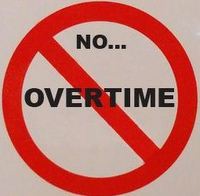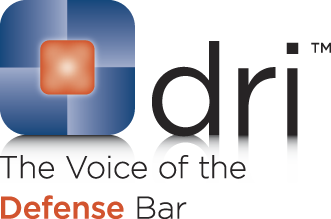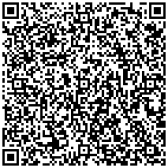 Mr. Winston drove commercial vehicles for Air Truck Express (ATE), an interstate regional line haul carrier. After his position ended at ATE, driver Winston claimed that he should have been paid overtime for his driving. Even though all the employment paperwork was to the contrary, driver Winston argued that he should be deemed an employee of D&N Delivery Corporation (D&N), the sister corporation of ATE. Both ATE and D&N have interstate operating authority. However, D&N provided the last leg of the interstate delivery of packages arriving at the terminal that ATE / D&N share. Driver Winston claimed that because he provided primarily intrastate deliveries, the Fair Labor Standard Act’s Motor Carrier Overtime Exemption should not apply to him. He claims that because he wasn’t an interstate line haul driver, he should be deemed an employee of D&N and should be paid for his overtime.
Mr. Winston drove commercial vehicles for Air Truck Express (ATE), an interstate regional line haul carrier. After his position ended at ATE, driver Winston claimed that he should have been paid overtime for his driving. Even though all the employment paperwork was to the contrary, driver Winston argued that he should be deemed an employee of D&N Delivery Corporation (D&N), the sister corporation of ATE. Both ATE and D&N have interstate operating authority. However, D&N provided the last leg of the interstate delivery of packages arriving at the terminal that ATE / D&N share. Driver Winston claimed that because he provided primarily intrastate deliveries, the Fair Labor Standard Act’s Motor Carrier Overtime Exemption should not apply to him. He claims that because he wasn’t an interstate line haul driver, he should be deemed an employee of D&N and should be paid for his overtime.
The court in Winston v. Air Truck Express, Case No. 2:13-cv-01167-JAD-GWF (U.S. Dist. Ct. Nev. 01/27/16) considered the Plaintiff’s arguments and ultimately rejected them all. Before doing so, the court pointed out that the burden is on the motor carrier to show that the overtime exemption applies. Donovan v. Nekton, Inc., 703 F.2d 1148, 1151 (9th Cir. 1983). The Motor Carrier Exemption to the FLSA should be narrowly construed against the employer and should only apply in circumstances that are plainly and unmistakably within the terms and spirit of the exemption. Arnold v. Ben Kanowsky, Inc., 361 U.S. 388, 396 (1960). The court reminds that if a driver has not driven in interstate commerce, if the motor carrier is to prevail, it must present evidence that the carrier has engaged in interstate commerce and that the driver could reasonably have been expected to make one of the carrier’s interstate runs. Satisfactory evidence would be statements from other drivers, and any employment agreements. 46 Fed. Reg. 37,902; 49 C.F.R. § 390.
Thus in its Order in Winston, the court gives interstate motor carriers something of a formula to follow to improve the likelihood that the motor carrier will prevail should an exempt driver claim entitlement to overtime pay.
Here is the formula. First, the employer must qualify to claim the exemption. Here, the court found that because both ATE and D&N had interstate authority that it would not mattered which one of the companies had employed the Plaintiff. Winston, at 5. Both were legally qualified to claim the exemption. In addition, the vehicles operated should qualify as commercial vehicles, likely with a Gross Vehicle Weight Rating of more than 26,000 lbs and definitely not 10,000 lbs. or less.
Second, when hired, the driver should be caused to understand that the overtime exemption applies. At the initial orientation, the driver should sign paperwork that acknowledging that the motor carrier’s vehicles are used in interstate commerce and that the driver’s responsibilities are “safety affecting activities”. The employment paperwork should also include an admission that the cargo carried will include goods originating outside of the state in which they are ultimately delivered. In addition, the motor carrier should give written notice that the employer expects drivers to make interstate trips even if many of the deliveries will be made intrastate. Finally, the motor carrier should have the driver sign a concession that he or she is not entitled to overtime pay.
Finally, the motor carrier should make and carry out a plan to have all of its exempt drivers to take interstate deliveries, at least occasionally. And the motor carrier should be prepared to show that in fact many of the goods shipped originate from or are destined for another state.
No plan can promise universal success for the motor carrier. However, based upon the Winston decision, this formula seems to provide the best likelihood for success.
If you have questions about the Motor Carrier Overtime Exemption, please contact Mike Mills at Bauman, Loewe, Witt & Maxwell, 702-240-6060 or send an email to mmills@blwmlawfirm.com. Mike will be glad to respond.
 Follow
Follow Email
Email


